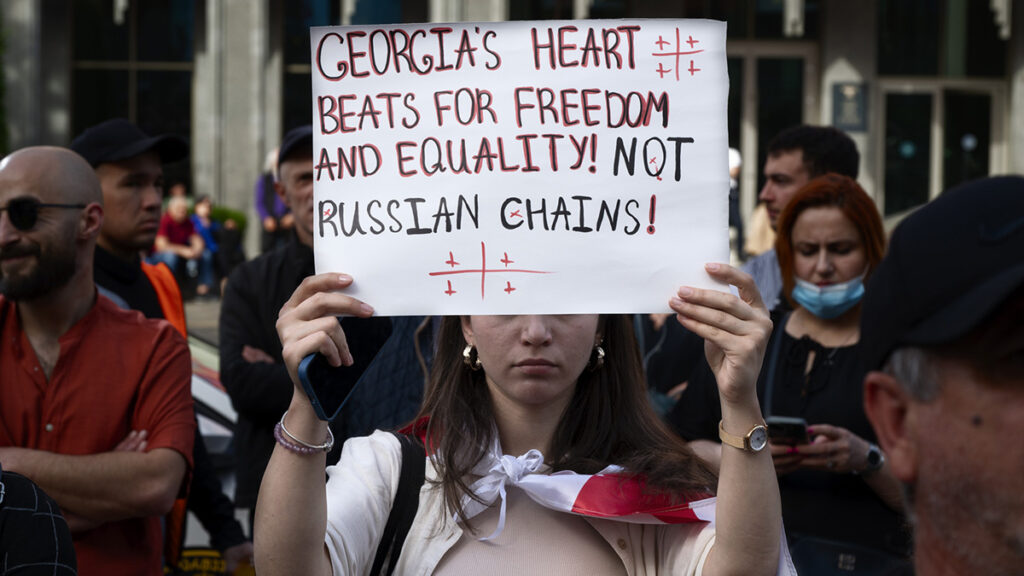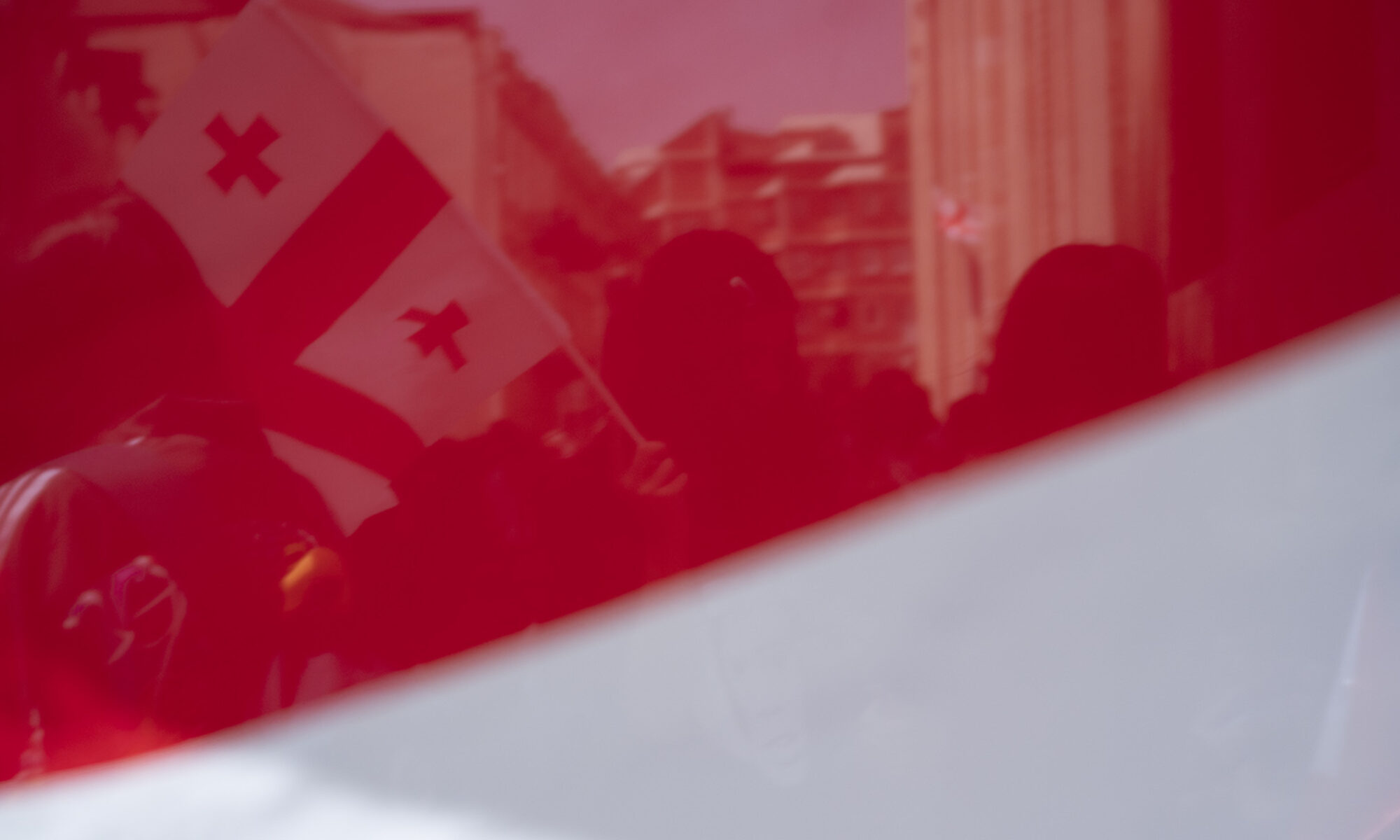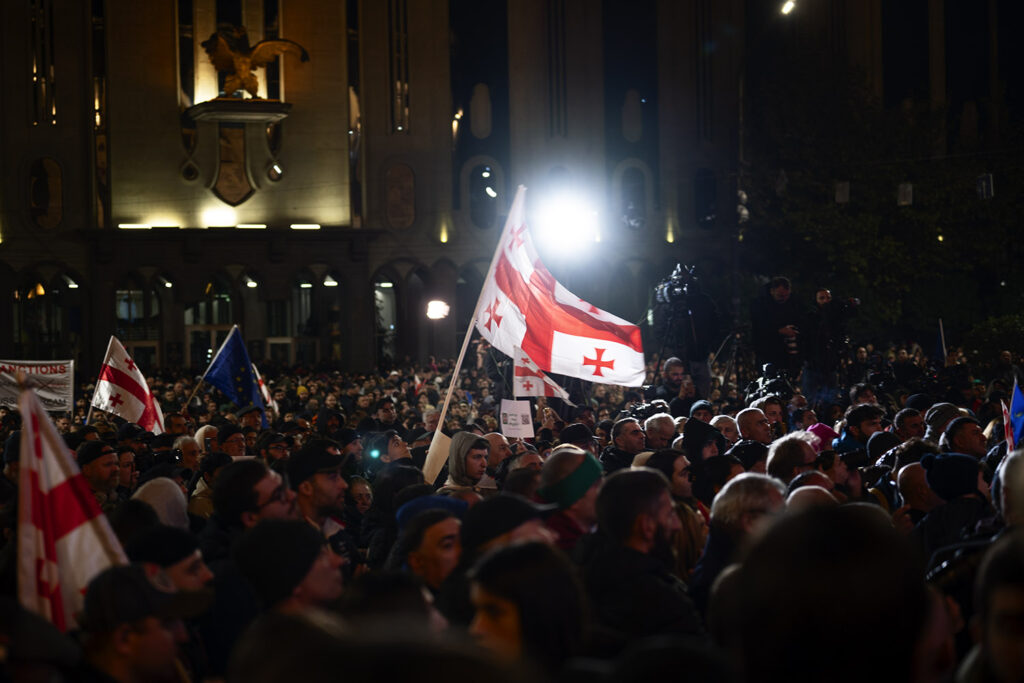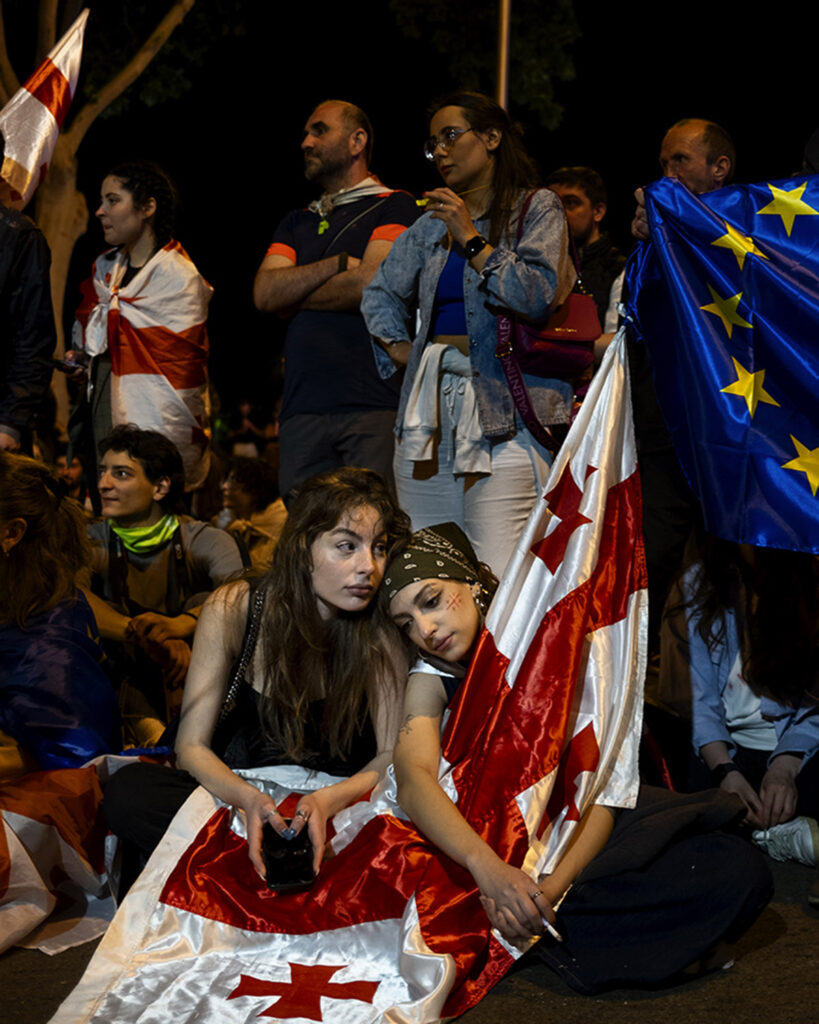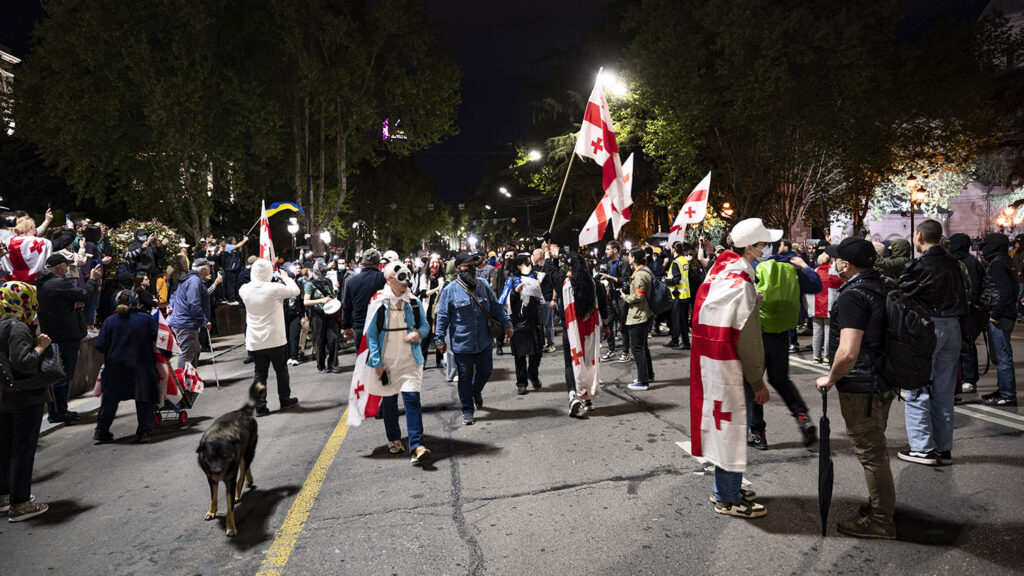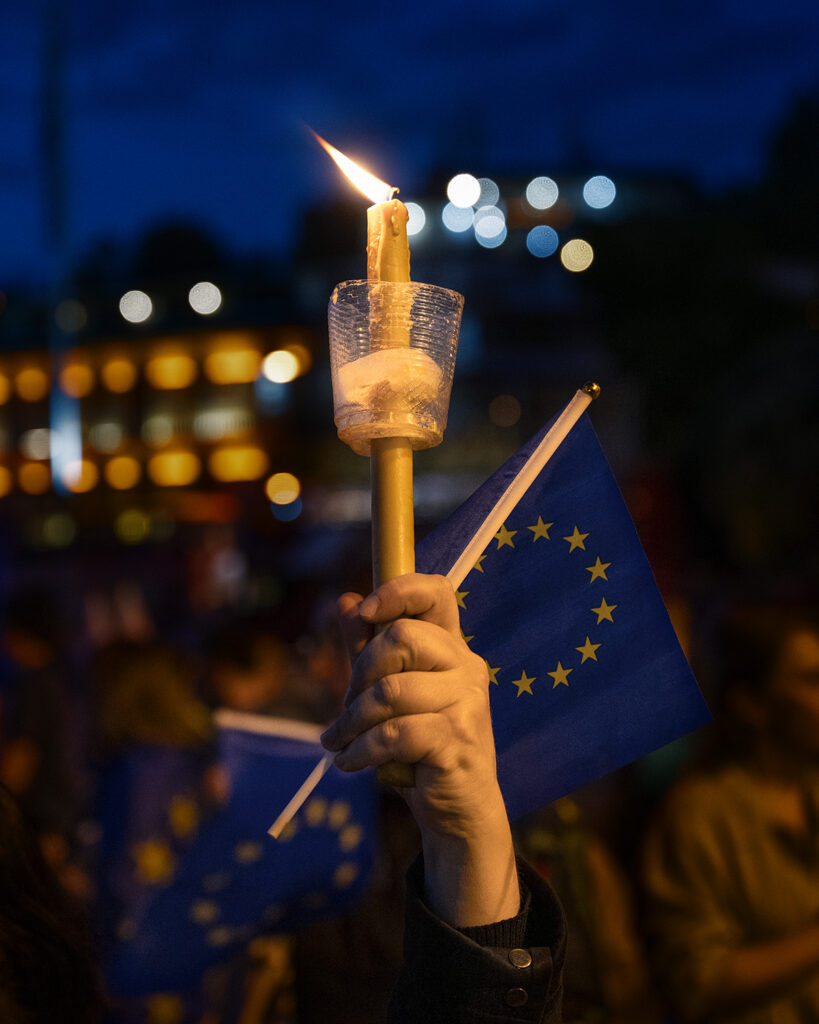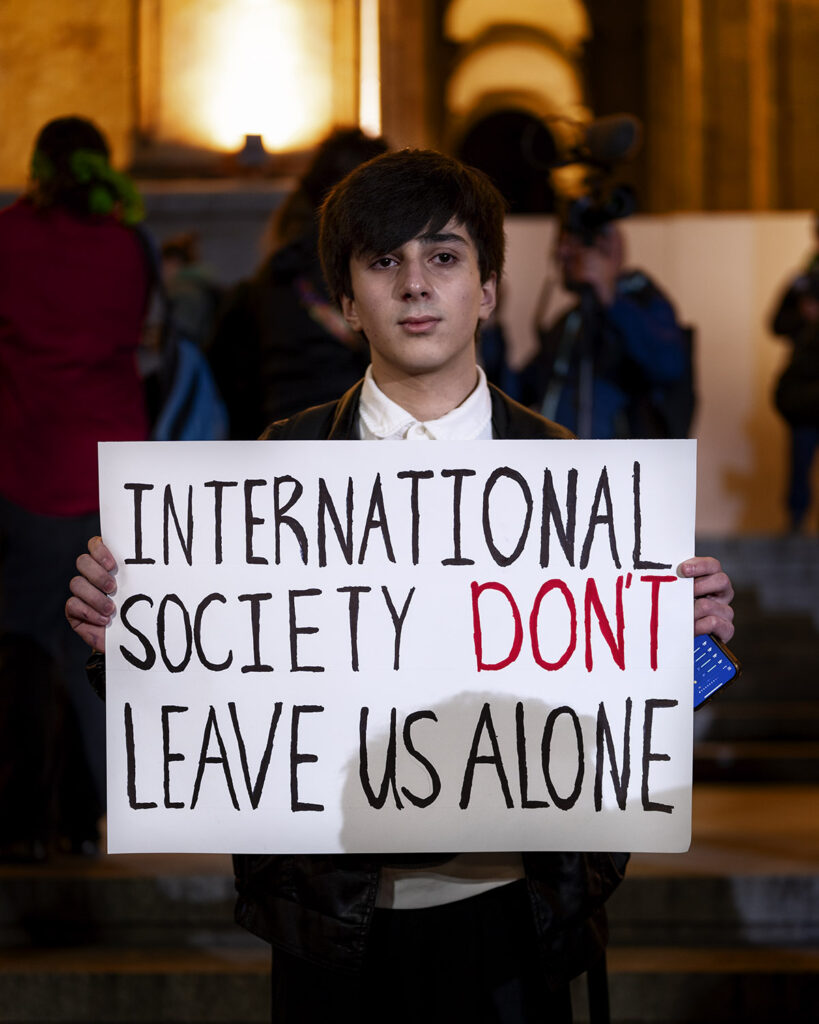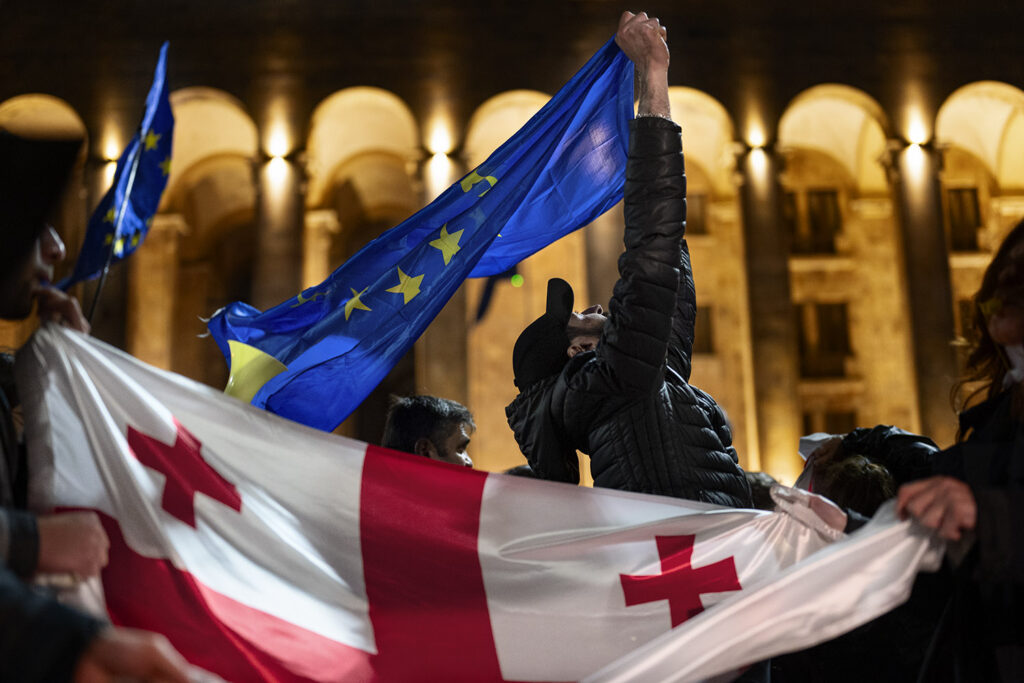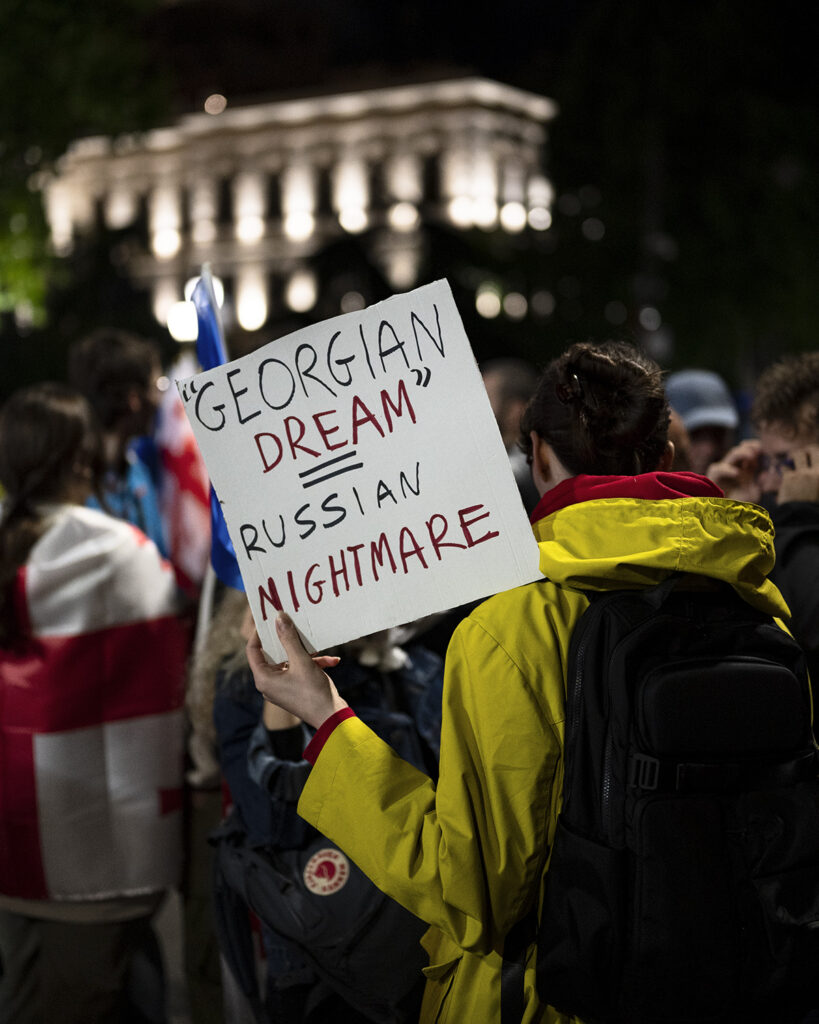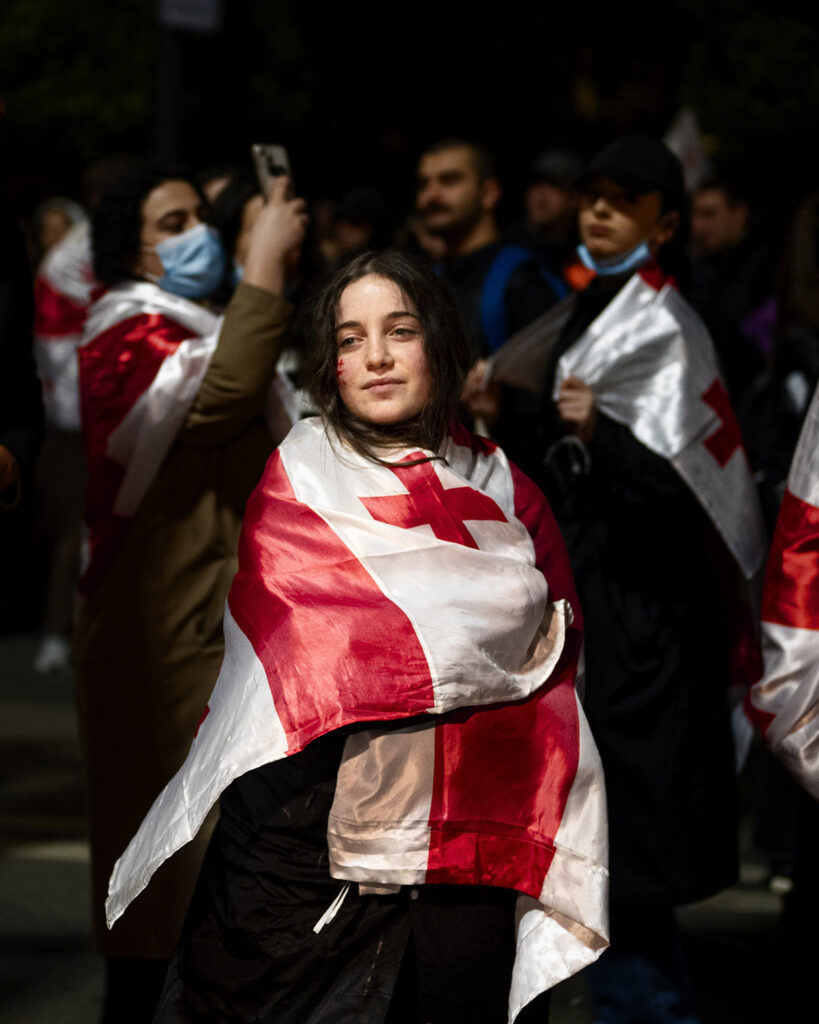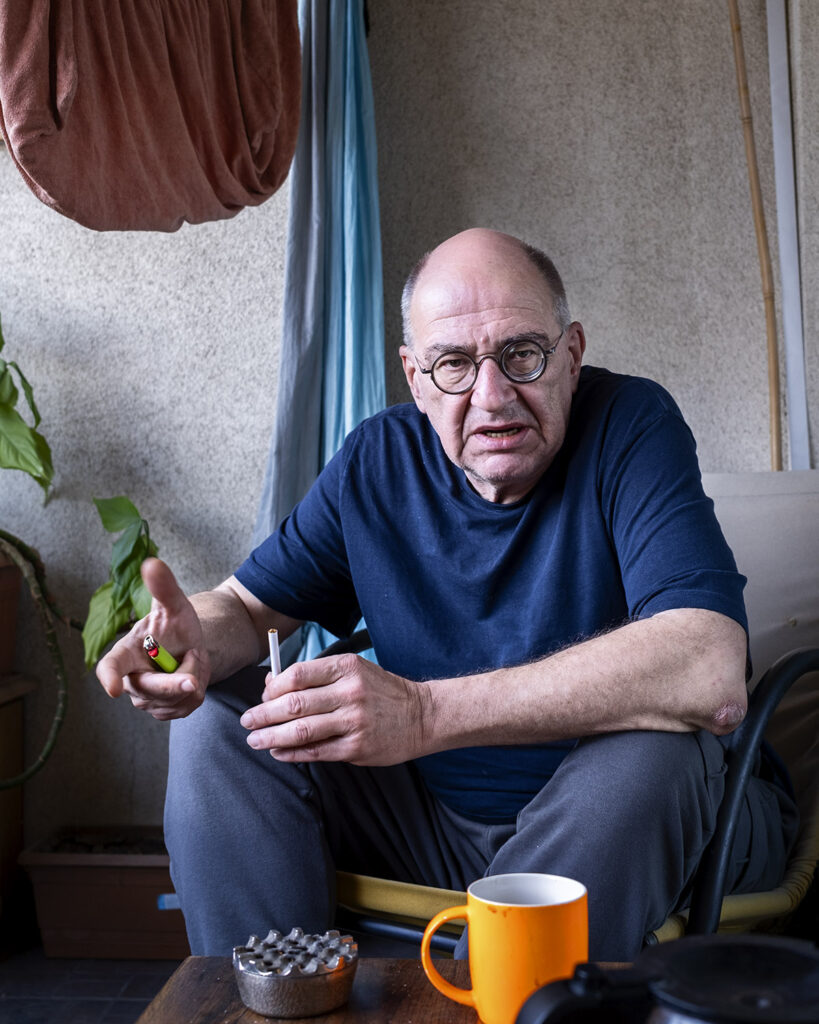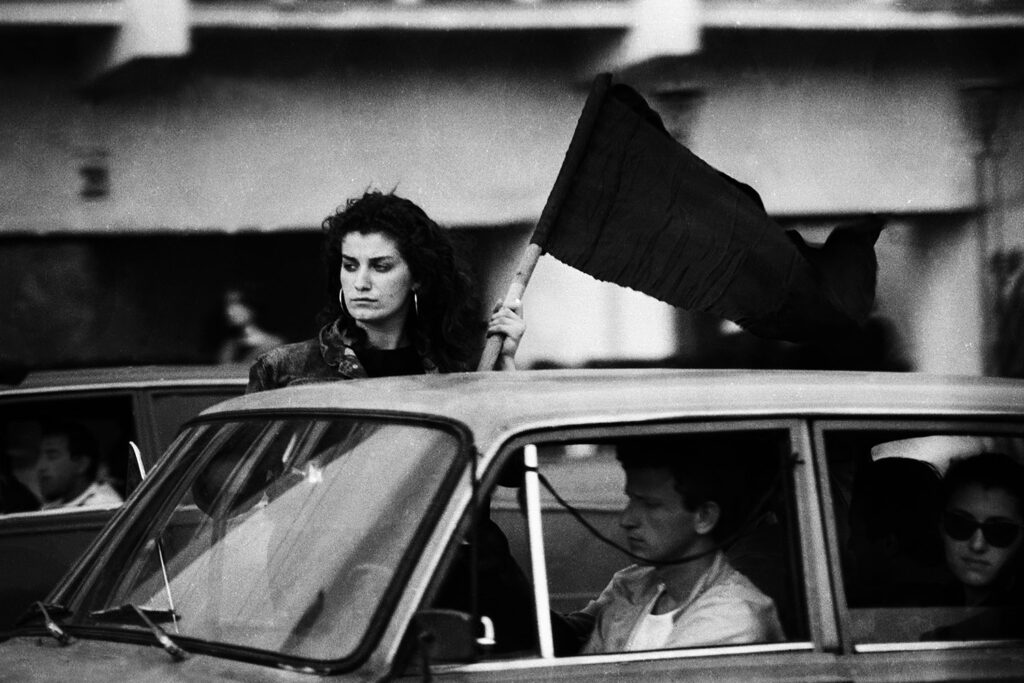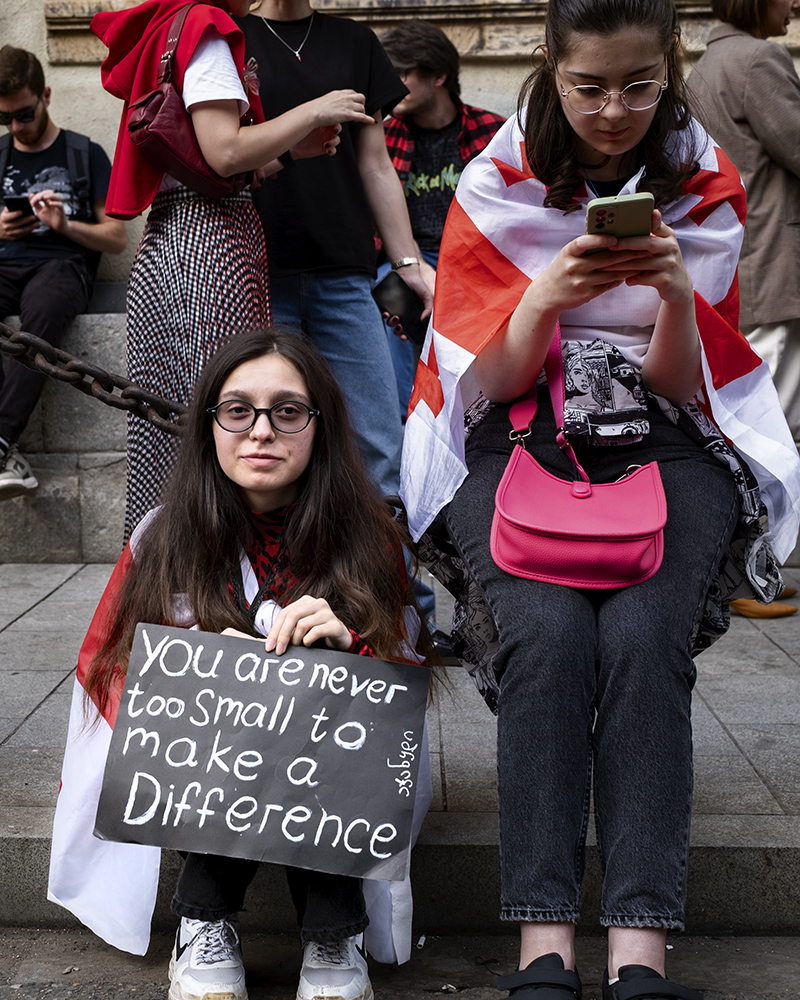So here we are in the new year. Yet, as much as we had hoped otherwise, not much has changed on the Georgian home front. The platform Civil.ge describes 2025 in Georgia as a year of descent and endurance, noting that “Georgian Dream has yet to achieve full consolidation of authoritarian rule, and the battle is still on.”
All the more, we owe respect to those who continue to demonstrate—fighting the odds and the threat of detention—for 400 days and counting. The same respect is due to those tirelessly covering the demonstrations: the photographers and writers who keep us informed about what is happening.
It is challenging work in a tough environment. Those who do it need support so they can continue their much-needed efforts. That is why they created Sinatle / The Lights Must Stay On, a platform that supports independent media in Georgia. If you can, take a look.
And let us hope that the lights will shine even brighter as we move into this year.
